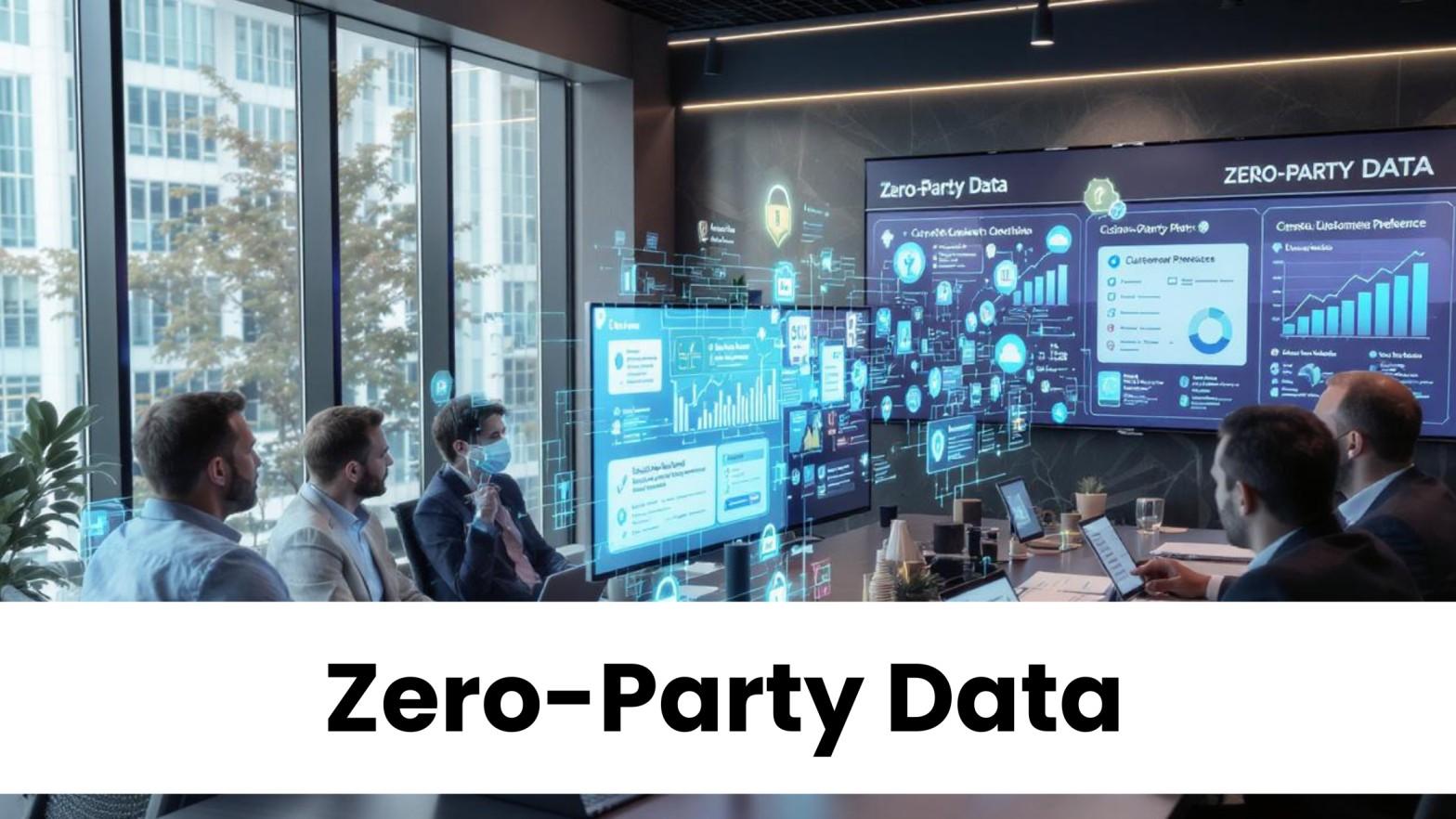How Zero-Party Data Fuels Privacy-First Marketing

In B2B marketing, privacy and compliance are critical factors for building trust with clients. One of the most effective ways to implement a privacy-first approach is through Zero-Party Data. Zero-Party Data is voluntarily shared by clients, including their preferences, intentions, and feedback. Using this information responsibly allows businesses to deliver personalized experiences while maintaining compliance and fostering client trust.
Understanding Zero-Party Data
Zero-Party Data differs from first-party and third-party data. First-party data is collected from client interactions and third-party data is obtained from external sources. Zero-Party Data is intentionally provided by the client, making it consent-based and highly accurate. This ensures that marketers are working with reliable insights while respecting client privacy.
Methods to Collect Zero-Party Data
Collecting Zero-Party Data involves creating opportunities for clients to share information willingly. Surveys, preference forms, interactive content, and product feedback tools are effective methods. These approaches give clients control over what information they provide, promoting transparency and privacy-first practices.
Benefits of Zero-Party Data for Privacy-First Marketing
Using Zero-Party Data has multiple advantages. Firstly, it allows marketers to deliver highly personalized experiences tailored to client preferences. Secondly, it ensures data accuracy because the information is provided directly by the client. Thirdly, it supports compliance with privacy regulations such as GDPR and CCPA, which is critical for maintaining trust in B2B relationships.
Building a Privacy-First Strategy
A strong Zero-Party Data strategy requires transparent communication and intuitive data collection processes. Businesses should clearly explain how client data will be used and provide incentives for sharing, such as personalized resources, early access to content, or tailored recommendations. This approach encourages clients to participate willingly while reinforcing trust and privacy.
Analytics for Privacy-First Insights
Analyzing Zero-Party Data allows marketers to identify patterns, anticipate client needs, and deliver relevant content. For example, if clients show interest in a particular product feature, marketing and sales teams can focus messaging on that feature. This data-driven approach strengthens engagement while maintaining privacy and compliance.
Ethical Marketing and Client Privacy
Zero-Party Data aligns with ethical marketing practices by prioritizing client consent and transparency. Clients are more likely to engage with brands that respect their data and protect their privacy. Using voluntarily shared information allows B2B companies to provide value while building long-term trust and loyalty.
Cross-Functional Collaboration with Zero-Party Data
Sharing Zero-Party Data across marketing, sales, and customer success teams ensures a consistent and privacy-conscious client experience. If a client indicates preferences for specific solutions or resources, all teams can tailor their communications, enhancing engagement and conversion while maintaining trust.
Technology Platforms for Zero-Party Data
Effective management of Zero-Party Data requires modern technology platforms. Integrating CRM systems, marketing automation tools, and customer data platforms ensures data is collected, stored, and activated securely and in compliance with privacy regulations. This allows businesses to deliver personalized marketing at scale without compromising privacy.
Zero-Party Data as a Privacy-First Growth Strategy
Zero-Party Data is a long-term strategy for privacy-first marketing. By using client-provided insights responsibly, B2B companies can deliver relevant experiences, maintain compliance, and build strong, trust-based relationships, supporting sustainable growth.
Fostering a Culture of Privacy and Trust
To maximize the value of Zero-Party Data, organizations should cultivate a culture that prioritizes privacy, trust, and transparency. Educating teams about ethical data practices, communicating clearly with clients, and respecting preferences ensures that Zero-Party Data becomes a strategic tool for client engagement and long-term success.
Read Full Article : https://acceligize.com/featured-blogs/zero-party-data-in-b2b-marketing-building-trust-compliance/
About Us : Acceligize is a global B2B demand generation and technology marketing company helping brands connect with qualified audiences through data-driven strategies. Founded in 2016, it delivers end-to-end lead generation, content syndication, and account-based marketing solutions powered by technology, creativity, and compliance.
- Art
- Causes
- Crafts
- Dance
- Drinks
- Film
- Fitness
- Food
- Games
- Gardening
- Health
- Home
- Literature
- Music
- Networking
- Other
- Party
- Religion
- Shopping
- Sports
- Theater
- Wellness




